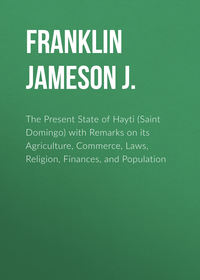The Present State of Hayti (Saint Domingo) with Remarks on its Agriculture, Commerce, Laws, Religion, Finances, and Population

Полная версия
Добавить В библиотекуАвторизуйтесь, чтобы добавить
Добавить отзывДобавить цитату
The Present State of Hayti (Saint Domingo) with Remarks on its Agriculture, Commerce, Laws, Religion, Finances, and Population
Авторизация